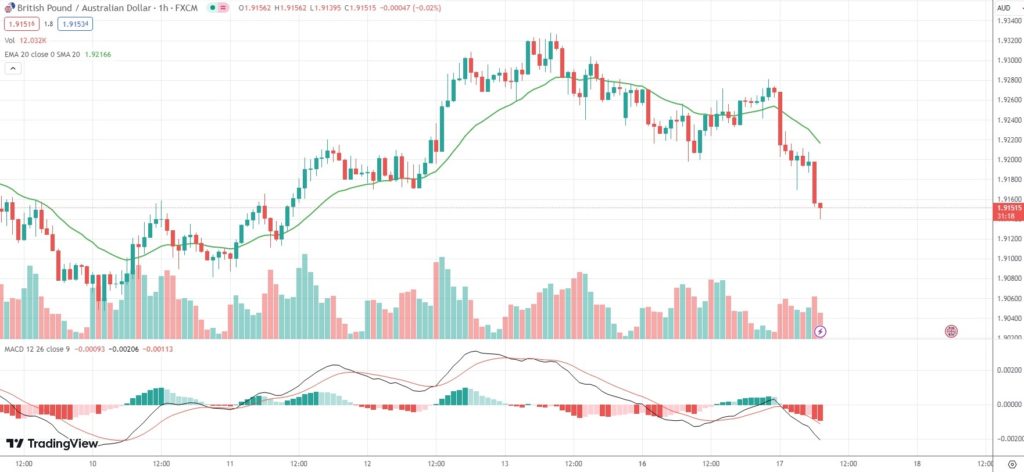The GBP/AUD currency pair edged lower on Tuesday, after data showed UK wage growth had decelerated in the three months to August, while taking some pressure off the Bank of England to further tighten monetary policy in November.
Average weekly earnings, including bonuses, rose 8.1% year-on-year to GBP 661 per week in the three months to August, compared with market expectations of an 8.3% growth.
Though the lowest since May, wage growth still remained elevated, largely impacted by the NHS and civil service one-off payments made in June, July and August, according to the Office for National Statistics.
In the latest period, wage growth was the highest in the public sector, 12.5%, while private sector wages increased 7.1% YoY.
Regular pay, excluding bonuses, rose 7.8% year-on-year to GBP 619 per week in the three months to August, while matching market consensus.
Meanwhile, the minutes of the Reserve Bank of Australia’s October policy meeting showed board members had considered raising the cash rate, but decided to leave it on hold for the fourth consecutive month.
RBA policy makers noted the monthly CPI indicator suggested that progress in reducing services price inflation remained slow.
“Members acknowledged that upside risks were a significant concern,” the minutes stated. “The Board has a low tolerance for a slower return of inflation to target than currently expected.”
Currently, the RBA board assumes that annual CPI inflation will not return to the target range of 2% to 3% until late 2025. Therefore, some further tightening may be required, but it would depend on the incoming data, the minutes showed.
As of 7:28 GMT on Tuesday GBP/AUD was retreating 0.56% to trade at 1.9151.






